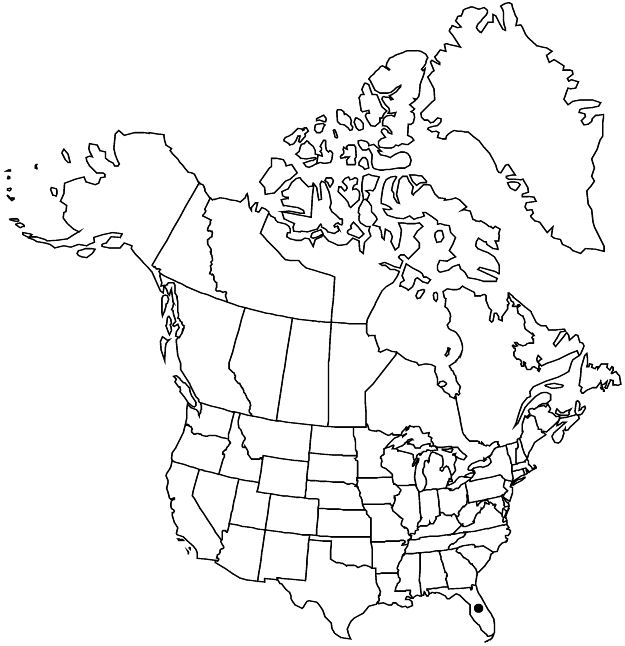Euphorbia pinetorum
J. Arnold Arbor. 48: 403. 1967.
Herbs, perennial, with thickened, woody taproot. Stems erect, 30–100 cm, glabrous; branches ± straight. Leaves usually alternate, occasionally opposite proximally; petiole 0–1.5 mm, glabrous; blade narrowly lanceolate to linear, base long-attenuate, 30–120 × 2.5–5 mm, margins usually entire, occasionally with few inconspicuous teeth, revolute, apex narrowly acute, surfaces glabrous; venation obscurely pinnate, midvein prominent. Cyathial arrangement: terminal monochasial or dichasial branches 1–2, unbranched; pleiochasial bracts 2–3, often whorled, wholly purpurescent green or pink at base, similar in shape and size to distal leaves or slightly narrower; dichasial bracts highly reduced. Cyathia: peduncle 1.5–3 mm. Involucre campanulate, 1.5–1.9 × 1.4–1.7 mm, glabrous; involucral lobes divided into broad, triangular segments; glands 3 (–5), red to purple, sessile and broadly attached, 0.8–1.1 × 1.2–1.6 mm, opening oblong (flattened without pressing), without annular rim, glabrous; appendages absent. Staminate flowers 8–12. Pistillate flowers: ovary glabrous; styles 1.5 mm, 2-fid nearly entire length. Capsules purpurescent, depressed-globose, 2.8–3.2 × 3.6–4 mm, 3-lobed, glabrous; columella 2.6–2.9 mm. Seeds dark-brown, cylindric-ovoid to ovoid, rounded in cross-section, 2.1–2.4 × 2 mm, uniformly low-tuberculate, tubercles in median, transverse ridge; caruncle absent.
Phenology: Flowering and fruiting year-round.
Habitat: Sandy soils in pinelands.
Elevation: 0–10 m.
Discussion
Euphorbia pinetorum has a restricted distribution in southern peninsular Florida, primarily in Miami-Dade and Monroe counties. The species is very similar to narrow-leaved forms of the closely related E. cyathophora but differs in its perennial habit, consistently unlobed leaves, and purpurescent involucral glands and cyathia.
Selected References
None.
Lower Taxa
"narrower" is not a number."broad" is not a number."connate" is not a number. "distinct" is not a number."entire" is not a number.
